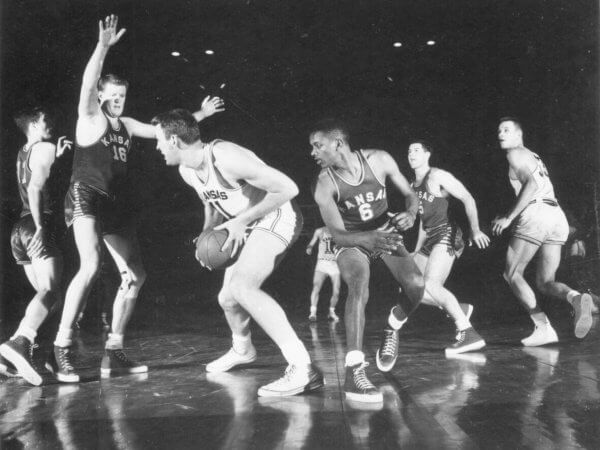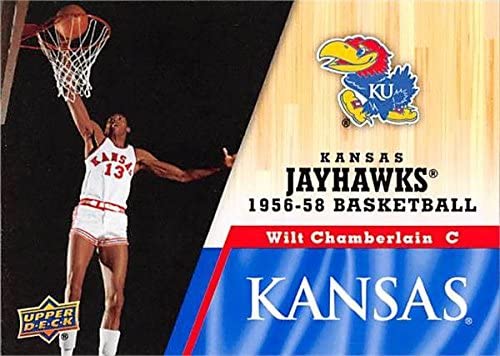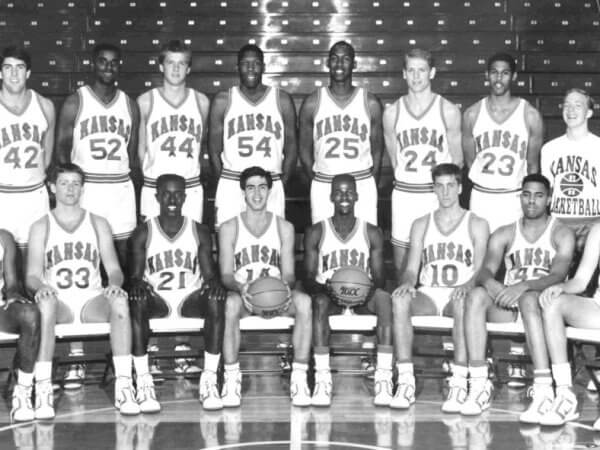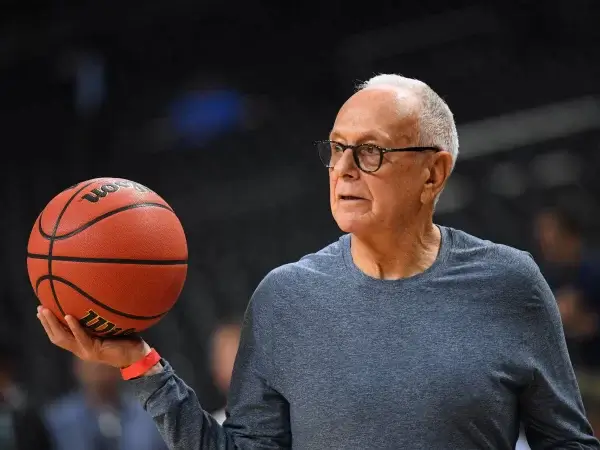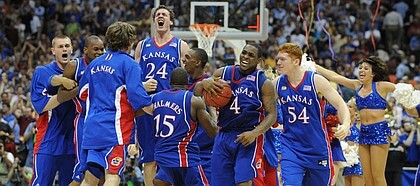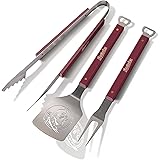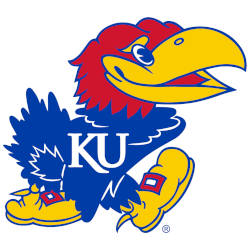
College Sports Established
1865
Location
Lawrence, Kansas
College Name
University of Kansas
Collegiate History
1973 - Present / NCAA Division 1
1921 - 1973 / University Division of the NCAA
1907 - 1921 / Athletic Association of the United States
Conference History
1996 - Present / Big 12 Conference
1964 – 1996 / Big Eight Conference
1947 – 1964 / Big Seven Conference
1928 – 1947 / Big Six Conference
1907 – 1928 / Missouri Valley Intercollegiate Athletic Association
Nickname
Jayhawks - The Kansas Jayhawks are one of the most iconic teams in college sports, and their nickname has a long and storied history. The origin of the name dates back to 1866 when two Civil War veterans from Kansas adopted it as their own after hearing a song about “Jayhawkers” during an expedition in Missouri.
At that time, "Jayhawks" was slang for plundering or stealing, which made sense considering these two veterans had just returned from war. They decided to use this term as part of their identity, and thus began the tradition that still stands today: cheering on your beloved Jayhawks!
The mascot itself is based on an American bird native to North America called a blue jay—a fitting symbol for such a hard-working team who never gives up no matter what obstacles they face. In addition, many fans believe there is also some symbolism behind choosing this particular bird; its bright colors represent courage while its wings embody freedom—two qualities every great athlete should strive for on and off the court/field/track/etc...
In short, whether you're rooting for them at home games or showing your support with apparel around town (or even online!), make sure you show love towards those courageous birds known affectionately as The Kansas Jayhawks!
NCAA Championships
Baseball 0
Men's Basketball 6
2022, 2008, 1988, 1952, 1923, 1922
Women's Basketball 0
Football 0
Soccer 0
- 1952
- 1958
- 1988
- 1988
- 2008
- 2022
-
Kansas Jayhawks second national championship
In 1952: The Kansas Jayhawks men’s basketball team won its second national championship, as recognized by the NCAA. The team finished with a 28-3 record and was led by Clyde Lovellette, who was the first player to lead the nation in scoring and win the NCAA title in the same year. The team also featured future Hall of Famers Dean ... -
Jayhawks First Superstar – Wilt Chamberlain
On December 3, 1956, Chamberlain made his varsity debut as a center. In his first game, he scored 52 points and grabbed 31 rebounds, breaking both all-time Kansas records in an 87–69 win against Northwestern, who had Chamberlain’s future NBA teammate Joe Ruklick. Teammate Monte Johnson testified to his athleticism: “Wilt … had unbelievable endurance and speed … and was ... -
Kansas Jayhawks men’s basketball team won its third national championship
In 1988: The Kansas Jayhawks men’s basketball team won its third national championship, as recognized by the NCAA. -
coach Larry Brown
In 1988, The Jayhawks team finished with a 27-11 record and was coached by Larry Brown, who became the first coach to win both an NCAA and an NBA title -
Kansas NCAA Basketball Champs 2008
The 2007–08 Kansas Jayhawks men’s basketball team represented the University of Kansas for the NCAA Division I men’s intercollegiate basketball season of 2007–08, which was the Jayhawks’ 110th Season. The team was led by Bill Self in his fifth season as head coach. The team played its home games in Allen Fieldhouse in Lawrence, Kansas. The Jayhawks finished the season ... -
Jayhawks Incredible Comeback Win for the 2022 Basketball Season
The 2022 NCAA Division I Men’s Basketball Tournament involved 68 teams playing in a single-elimination tournament that determined the National Collegiate Athletic Association (NCAA) Division I men’s college basketball national champion for the 2021–22 season. The 83rd annual edition of the tournament began on March 15, 2022, and concluded with the championship game on April 4 at the Caesars Superdome ...
To qualify as the greatest player for this team, the player must have played one season for this team. If not, we will remove the player.
* verifies that player has played for this team as an added player by a fan.
History of the Jayhawks
They’ve made 15 Final Fours appearances in basketball and won three national championships (1952, 1988 & 2008). They also boast some impressive individual accomplishments, such as two players named National Player Of The Year (Danny Manning & Raef LaFrentz) and seven players inducted into the Naismith Memorial Basketball Hall Of Fame. In addition to these accolades, they’ve produced many NBA stars, including Paul Pierce and Joel Embiid.
On top of that success on hardwood courts around America, the Jayhawks have also seen plenty of wins on gridirons. Since joining what is now known as Big 12 Conference playback in 1996, they've won 11 conference titles with multiple bowl game appearances. Their most significant accomplishment was winning the Orange Bowl championship against Virginia Tech during the 2007 season, which earned them the number 7 ranking by AP Poll at the end year.
Overall, Kansas has had tremendous success over the years when looking at both menus and women's athletics combined. Still, basketball will remain the crown jewel for this proud university in the future due to its long-standing tradition within the sport itself, not just school level or nationally or internationally speaking!

